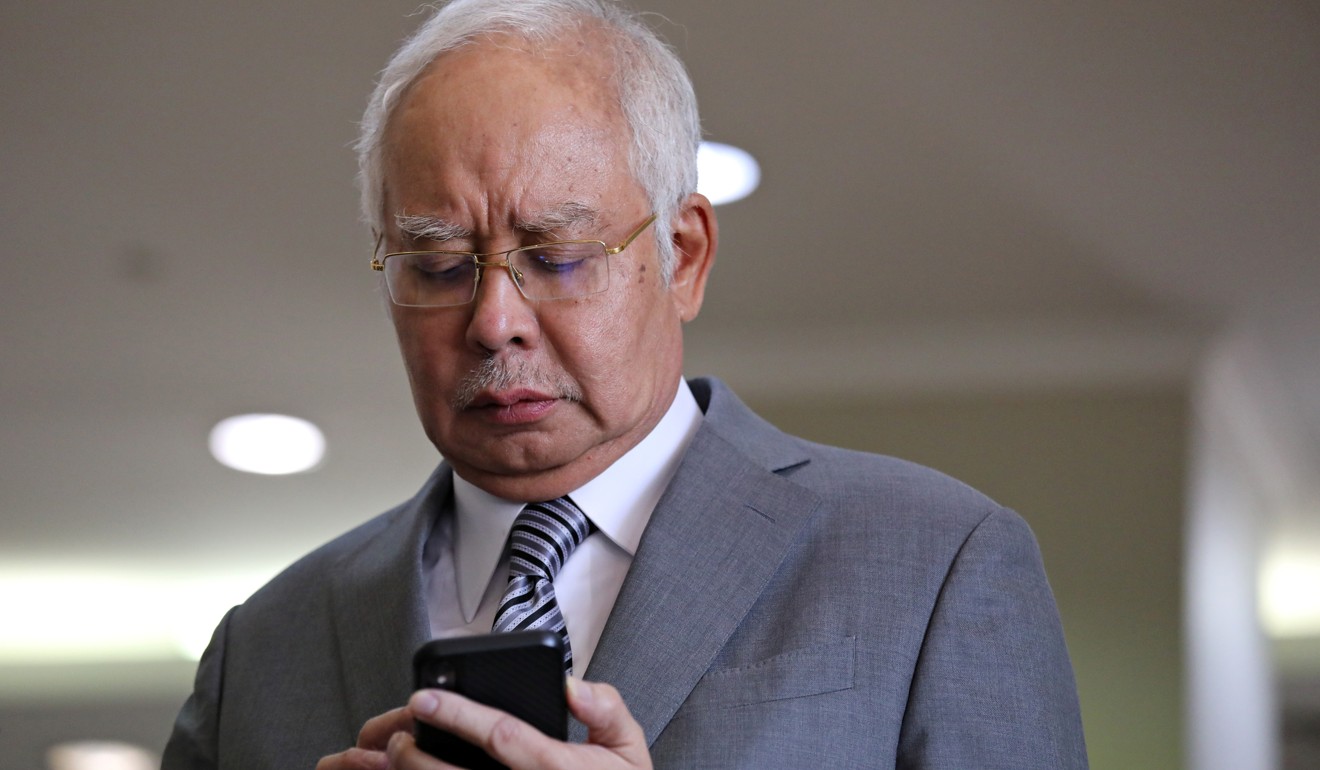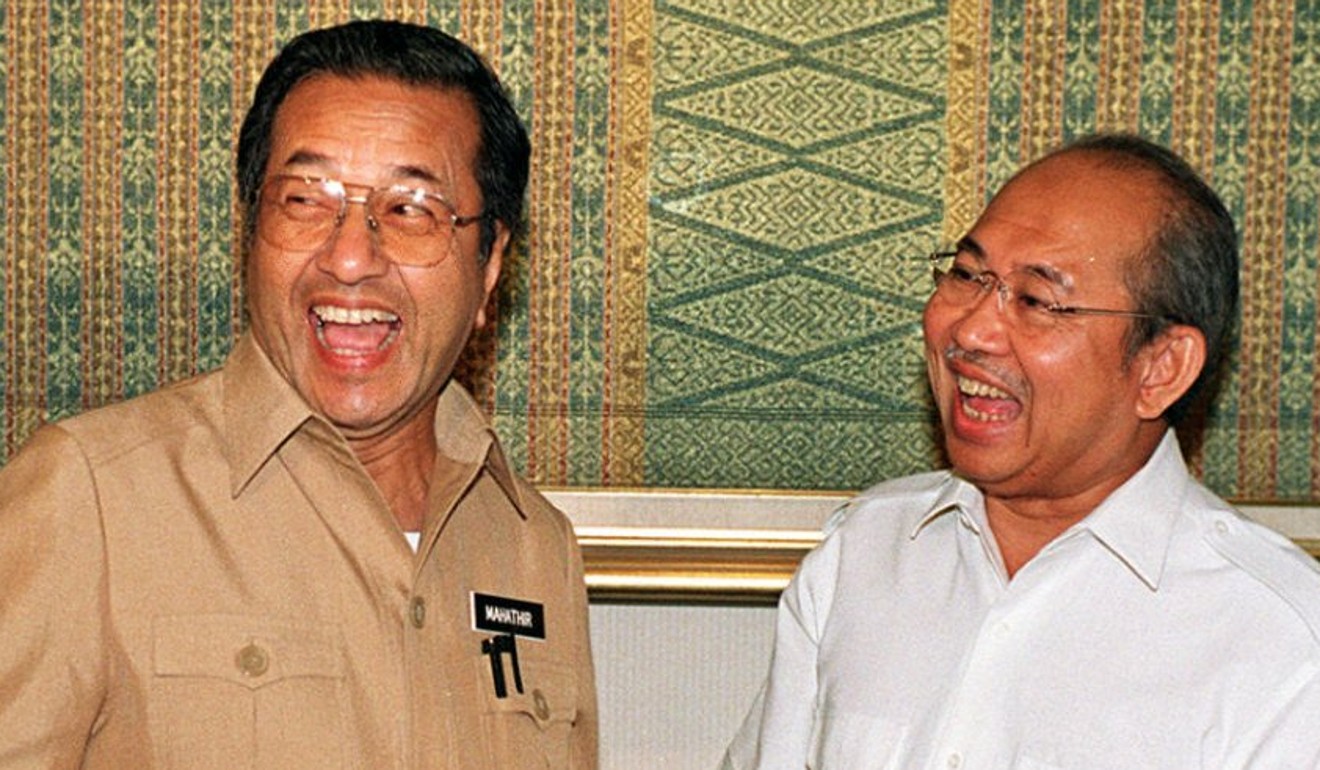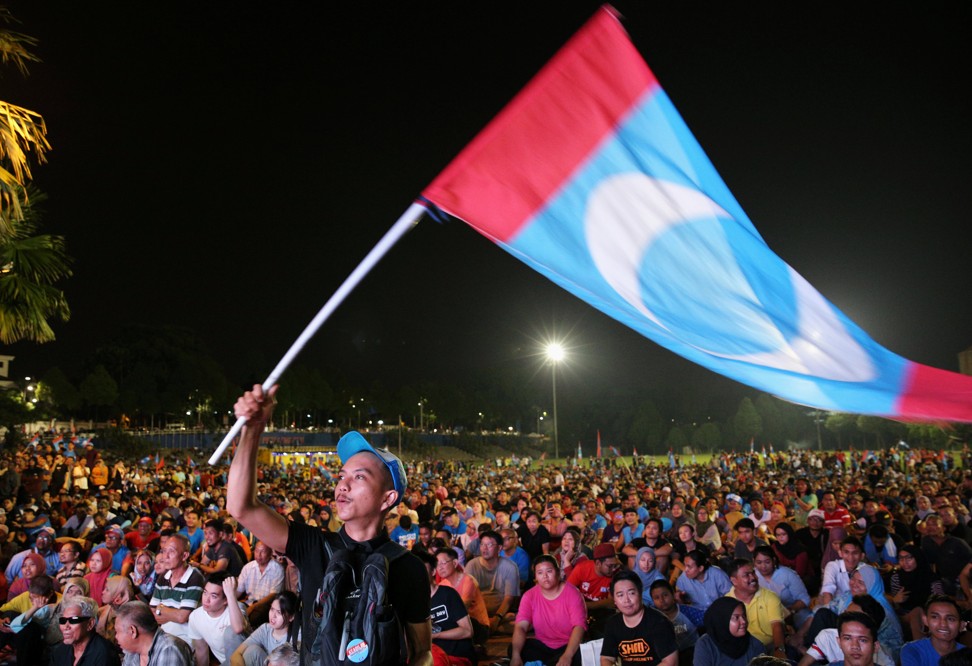
In Malaysia, Mahathir Mohamad’s gambits keep game of thrones alive
- Mahathir’s resignation as Malaysia’s PM looked at first like a clever scheme that would make him stronger. Then it looked like a plain old bad move
- But if there’s one rule in this game it’s this: never count him out
Malaysia’s Mahathir Mohamad, the Asian political colossus who felled three prime ministers in seven decades and occupied the hot seat twice himself, appears to possess multiples of nine lives in his country’s game of thrones.
Faced this week with his greatest crisis yet, the 94-year-old by press time on Saturday afternoon appeared to have once again willed his way out of banishment from the corridors of power.
That move severely dented efforts by Malay nationalists across political aisles who were hoping to back Muhyiddin Yassin, the number two in Mahathir’s Bersatu party, to form an administration to succeed the multiracial Pakatan Harapan coalition government that was abruptly dissolved on Monday following Mahathir’s resignation.

All sides had thought the political impasse of the last five days showed Mahathir’s legendary political guile had met its limits. For now, the man billed by his famed biographer as the “Malaysian Maverick” has shown he has cards up his sleeve yet.
When he awoke on Monday morning, he was the prime minister and leader of the formidable Pakatan Harapan coalition that had staged an audacious election victory two years ago over a calcified and corruption-tainted alliance.
By the evening, Mahathir was a caretaker prime minister, having resigned after his followers brought about the collapse of the Pakatan Harapan.
Mahathir says he has enough support for top job, will work with Anwar again
By Friday, with the impasse dragging on, the plaudits dried out and Mahathir appeared isolated over a gambit seen as too cavalier even for a master wheeler-dealer like him.
During the week, Mahathir voiced a plan for a “unity government” of individuals – rather than political parties – which would grant him broad executive powers. His old Pakatan Harapan allies balked at the plan, claiming it would be a “Mahathir government, not a Pakatan Harapan government”.
The veteran leader did not have a simple majority, and the renegades’ plan had fallen flat because it involved cooperating with the likes of the corruption-tainted allies of former prime minister Najib Razak, anathema for Mahathir.
Mahathir’s party won’t back him as PM; king rejects plan for parliament vote
Mahathir’s old Pakatan Harapan allies, once his biggest enemies when he led the country from 1981 to 2003, on Friday began openly attacking his perceived folly.
Still, political insiders and analysts told This Week in Asia that while the chips appeared down for the world’s oldest elected leader, it was never wise to bet against him – as events that occurred by press time have proven.
After all, the doctor-turned-politician’s entire career in government is riddled with instances where, with his back against the wall (often due to his own doing), Mahathir prevailed through sheer political skill.
Barry Wain, Mahathir’s late biographer, wrote that too often, “too late in the day, Mahathir’s opponents realised that he played politics harder, faster and smarter than anyone they had encountered”.

That observation was made in the 2009 book, Malaysian Maverick, which assessed the era now called Mahathir 1.0 – the statesman’s first stint in power and his rise to the top political job. Contemporary observers say it contains more than a kernel of truth about the nonagenarian Mahathir as well.
In the present saga, Mahathir until Saturday was fending off not only Anwar, but members of his own Bersatu party. The party is backing its president Muhyiddin to take over the premiership with the help of Najib’s United Malays National Organisation (Umno), the one-time grand old party that governed the country for 61 years until 2018.
Muhyiddin is seen as being amenable to cooperating with Najib and his allies, unlike Mahathir.
“It’s naive to think that Mahathir doesn’t know the schemings that have been going on within his party and with the opposition, being the savvy, experienced political player that he is,” said political scientist and academic Azmil Tayeb.
Malaysian MPs warned against accepting bribes amid political chaos
At almost every turn of Mahathir’s career are instances that landed him in seemingly political dead ends – often in duels with people who were initially close to him. The softly spoken but acerbic politician triumphed most of the time during these episodes, which occurred during his decades in Umno. Mahathir quit the party in 2016 in protest against Najib’s alleged corruption.
Among the most brazen of Mahathir’s acts was the open letter he penned as a budding politician in 1969, criticising the country’s founding prime minister Tunku Abdul Rahman. The letter triggered a chain of events that led to Tunku’s eventual ousting from power a year later. Mahathir paid a price and he spent time in the political wilderness for a few years after that.
Political duels were also aplenty when he took office as prime minister for the first time in 1981. The ruling party at the time, Umno was deeply splintered and Mahathir at one point governed with threadbare support from within the party.
In 1988, the party was deregistered for irregularities in an internal poll. Mahathir seized on the chance to form a new party, informally called Umno Baru (New Umno).

The new party strengthened the incumbent’s grip on leadership positions but omitted Tengku Razaleigh Hamzah, who served as Mahathir’s finance minister for a period but who later became his most dangerous internal rival.
In more recent times, Mahathir was also responsible for the abrupt end to his immediate successor Abdullah Ahmad Badawi’s time in the prime minister’s seat. Mahathir campaigned for the removal of Abdullah after the latter balked at following through with major infrastructure projects that the elder statesman had mooted during his earlier stint in power.
But after Mahathir fell out with Umno members, citing corruption and mismanagement of government, he repaired ties with Anwar and his former political foes in an uneasy alliance that saw the Pakatan Harapan take a shocking victory in May 2018.
The latest deal between them papers over the visceral differences over whether Anwar should ever take up the mantle of prime minister.
For now, it appears that issue will be put on the back-burner.
Analysts have repeatedly warned that a government dominated by Umno and its ally PAS, the nation’s Islamic party, would pose a threat to the multiracial country’s peace.
Muhyiddin’s plan was to govern in a coalition with these two parties and with minimal Chinese representation – much of the Chinese community have in recent years backed the DAP – which in turn would have sped up the country’s increasing tilt towards Islamic conservatism.

There are few clues available on just what transpired that compelled Mahathir and Anwar to come together at the eleventh hour after initially writing off further cooperation.
Some analysts suggested the leaders in the end saw that pursuing any other option would have had a ruinous effect on the country.
The price of old rivals Anwar and Mahathir not working with each other was “the collapse of their agenda to save and reform Malaysia”, said political scientist Wong Chin Huat of Sunway University.
“If Umno and PAS sweep into government, whether by way of a new coalition or after a snap election, the Pakatan Harapan’s reform agenda will be scuttled forever,” Wong said. “Hence, the question before Mahathir and Anwar is, do you hate each other more than kleptocracy and the grand larceny that crippled the nation?”
Malaysia: snap election if parliament can’t decide on new PM
Before Saturday’s deal, the critics charged that Mahathir’s go-it-alone approach was dangerous.
For many, it rekindled memories of his earlier stint in power when he governed with an iron fist, muzzling the press and throttling dissenters at the earliest sign of them posing credible threat to his power.
Moreover, for the likes of Khalid Abdul Samad – the Federal Territories Minister in the erstwhile Pakatan Harapan government – what was at stake was Mahathir’s personal legacy.
“Return to us as the Hero of 2018, not the Villain of 1987 (ISA Ops Lalang) or the Despot of 1998 (Reformasi),” the former minister wrote on Twitter before Saturday’s developments.
“Carry on along the path of truth and honesty which you had started on in 2018 with us, which made you PM,” Samad wrote.
Echoing the minister was Charles Santiago, a vocal MP with the Democratic Action Party, a Pakatan Harapan constituent party. “In 2018, Malaysians cheered on Mahathir and believed he would do the right thing for the country,” Santiago said in an op-ed on Friday. “But in less than two years, we are now questioning if he was playing to the gallery.”
Still, there was a way forward, the third-term MP said. “I will still say all is not lost. Mahathir can still exit the scene with honour and dignity if he can withdraw from the race and pave the way for Anwar to be the eighth prime minister, as he has lost the mandate of the people.”

As the week-long pall cast over the country’s political future now appears to be lifting, insiders say they are wondering about the effect the episode has had on what was already a widening trust deficit between the masses and political elites in the country.
“The betrayals, secrets, plotting and lies with disregard for transparency and accountability are worthy of an award-winning soap opera,” noted one observer.
According to constitutional lawyer Malik Imtiaz, the simplest way forward right now would be for the king, who this week met all elected representatives and party leaders, to appoint a prime minister even without one individual boasting a clear majority.
Mahathir in his statement on Saturday intimated that he had a majority following his fresh pact with Anwar’s Pakatan Harapan.
“I am now confident that I have the numbers needed to garner majority support in the Dewan Rakyat [parliament]. I am therefore prepared to stand as prospective candidate for Prime Minister,” he said.
Malik said the king ultimately “has absolute say on who should be premier”.
“[The king] must determine who it is who is likely to command confidence, and that doesn’t mean that the person has to have – at the moment – overall majority support,” he said. “For the sake of the continuity of government, someone must be appointed, and this can be subject to the house confirming them later, whether with a vote of confidence or in the attempted passing of a Bill. But now the nation is suffering.”
Malaysia’s Najib and wife appear on Netflix documentary about corruption
Political sources on Friday had foretold that the crisis would stretch through the weekend even though they acknowledged that furious efforts were underway for the Anwar-Mahathir rapprochement to come through. And the wheels were indeed turning right until press time.
By noon on Saturday, Bersatu responded to the latest developments by announcing it was rescinding its offer to reinstall Mahathir as the party’s chairman, claiming he had flouted its internal constitution with his latest act. It bungled its earlier response soon after Mahathir’s early morning announcement about cooperating with Anwar, appeared to retract a statement sent out to journalists. Online, citizens and political insiders alike reacted with exasperation.
Needless to say, it was the popular HBO TV series Game of Thrones, known best for a plot that involves vacillating alliances, political chicanery, and a general “no permanent enemies, and no permanent friends, only permanent interests” axiom, that was repeatedly referenced.
“I feel like I just lived through 8 seasons of Game of Thrones in 7 days,” lamented the Pakatan Harapan politician Zairil Khir Johari on Twitter.



